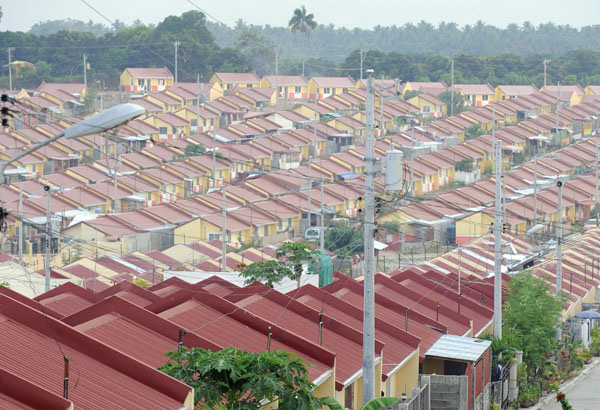Manila: Banks further tighten real estate loans
.
MANILA, Philippines — Banks continued to tighten lending standards for commercial real estate and housing loans for seven consecutive quarters amid the steady rise in prices, the Bangko Sentral ng Pilipinas (BSP) reported over the weekend.
The central bank’s third quarter 2017 senior loan officers survey showed a net tightening of overall credit standards for commercial real estate and housing loans using the diffusion index (DI) approach.
“The tighter overall credit standards for commercial real estate loans reflected respondent banks’ wider loan margins, reduced credit line sizes, stricter collateral requirements and loan covenants, and increased use of interest rate floors,” said Dennis Lapid, deputy director at the BSP’s Department of Economic Research.
<>
ADVERTISEMENT: This space is reserve for your Ad!
<>
Lapid said majority of the respondent banks expect continued net tightening of credits for commercial real estate and housing loans over the next quarter due to rising demand.
“A number of banks, however, indicated increased demand for commercial property loans on the back of increased working capital needs, banks’ more attractive financing terms and lower interest rates,” he said.
Although most of the respondent banks anticipate generally steady loan demand in the next quarter, Lapid explained several banks expect demand for commercial real estate loans to continue to increase.
Using the modal approach, the BSP said 84.2 percent of respondent banks indicated unchanged credit standards for commercial real estate loans for the third quarter.
Lapid said a larger proportion of respondent banks reported unchanged credit standards for housing loans extended to households in the third quarter.
“The maintained credit standards for housing loans was attributed by respondent banks largely to their unchanged tolerance for risk and stable profile of borrowers,” he said.
The BSP has placed the real estate and project finance exposures of Philippine banks under tight watch as debt watchers and multilateral lending agencies have raised the red flag over the possible overheating in the economy.
The Monetary Board has approved enhancements to the prudential reporting requirements in order to strengthen oversight of banks’ real estate and project finance exposures.
The reportorial enhancements form part of BSP’s macroprudential toolkit and are being deployed to sharpen the BSP’s assessment of banking system exposures to the property sector.
Debt watchers led by Moody’s Investor Service, Fitch Ratings, multilateral lender International Monetary Fund (IMF) as well as investment banks led by DBS Bank Ltd of Singapore warned the Philippines is now showing signs of overheating.
The BSP has imposed a real estate loan limit of 20 percent of total loan portfolio. Lending to real estate activities increased 18 percent to P1.14 trillion as of the end of August and accounted for 17.3 percent of the industry’s loan book.
Based on the latest results of the Residential Real Estate Price Index (RREPI), prices of condominium units, townhouses, and single detached housing units declined to 116.6 percent in the second quarter from 122.2 percent.
Courtesy: By Lawrence Agcaoili (The Philippine Star) | Updated October 22, 2017 – 12:00am









